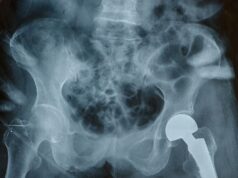The ethical landscape of orthopaedic research, particularly concerning experimental treatments and clinical trials, involves critical considerations to ensure patient safety and informed consent. This overview explores these ethical challenges and highlights key principles and practices.
Ensuring Patient Safety
Guiding Principles:
- Declaration of Helsinki: Emphasizes that the well-being of research participants must take precedence over scientific interests. This document serves as a cornerstone for ethical guidelines in clinical trials, advocating for stringent safeguards to protect participants’ health.
- Risk Assessment: Identifying and mitigating potential risks is crucial. Pragmatic randomized controlled trials (RCTs) present unique challenges, such as determining minimal risk thresholds and distinguishing between research and standard clinical care.
Practices for Safety:
- Comprehensive risk-benefit analysis before initiating trials.
- Ongoing monitoring of participant health throughout the study.
- Implementation of immediate corrective actions if adverse effects are observed.
Obtaining Informed Consent
Core Elements:
- Transparency: Participants must be fully informed about the nature of the research, including potential risks and benefits. This transparency is vital to ethical research practices.
- Comprehensiveness: Consent forms and discussions should cover all aspects of the trial to ensure participants make well-informed decisions.
Challenges and Solutions:
- Complex Scenarios: In emergencies or with populations having limited literacy, obtaining informed consent can be challenging. Innovative communication strategies are necessary to ensure comprehension.
- Alternative Methods: Using multimedia tools, simplified language, and community consultations can enhance understanding and consent validity.
Ethical Oversight
Regulatory and Ethical Bodies:
- Role of Ethics Committees: These committees are crucial for reviewing and approving trial protocols to ensure compliance with ethical standards. They monitor trials to safeguard participant rights and well-being.
- International Standards: Adhering to global ethical guidelines, such as those by the World Medical Association, while considering local regulations and cultural contexts, ensures robust ethical oversight.
Globalization and Its Implications:
- Varying Standards of Care: Conducting trials in developing countries poses ethical dilemmas, such as differing standards of care and the risk of exploitation. Ethical frameworks must balance scientific progress with the protection of vulnerable populations.
- Universal Standards: Advocating for a universal standard of care prevents compromising participant rights for research benefits, ensuring ethical consistency across different regions.
Practical Steps for Ethical Conduct
- Develop Clear Protocols: Establish comprehensive trial protocols that prioritize participant safety and informed consent.
- Engage Ethics Committees: Regularly consult with ethics committees to review and monitor trial activities.
- Implement Risk Mitigation: Conduct thorough risk assessments and maintain flexible strategies to address any adverse events.
- Enhance Communication: Use clear, accessible language and multiple communication methods to ensure informed consent is genuinely informed.
- Maintain Global Ethical Standards: Strive for ethical consistency across all trial locations, respecting local contexts while upholding universal ethical principles.
Navigating the ethics of experimental treatments and clinical trials in orthopaedics requires a steadfast commitment to patient safety, informed consent, and ethical oversight. By adhering to established guidelines and continually assessing risks and benefits, researchers can advance orthopaedic care while maintaining the trust and safety of their patients.





